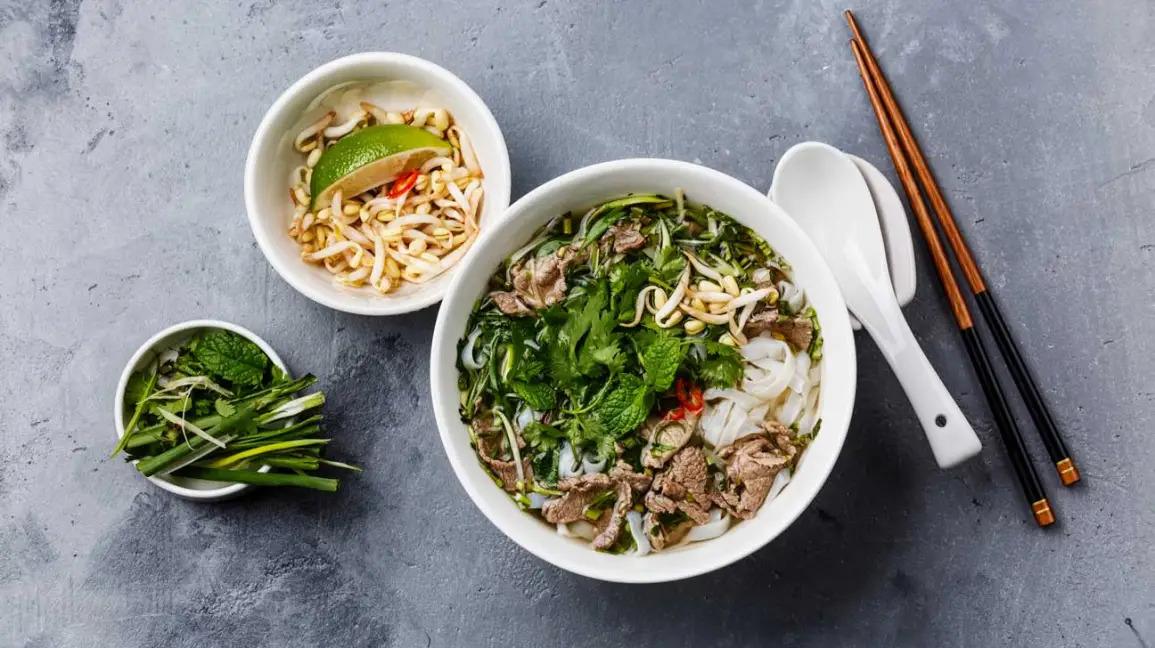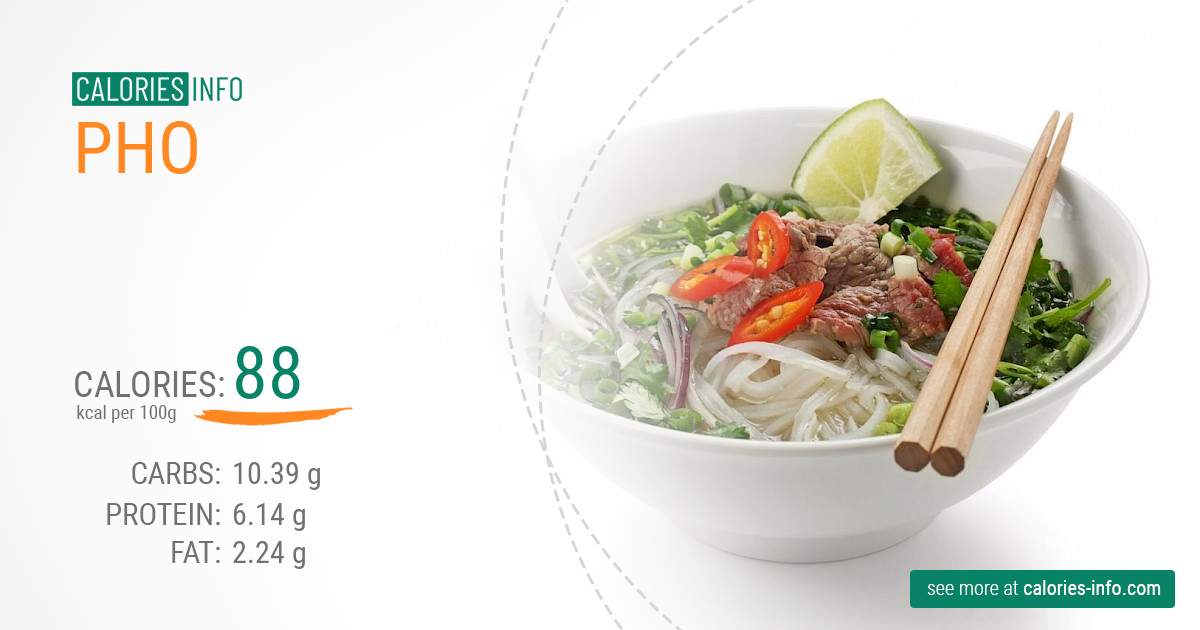Is Pho Good for You ?
Pho, a traditional Vietnamese soup, has gained immense popularity worldwide for its flavorful broth and combination of fresh ingredients. As more people are becoming conscious about their health and nutritional choices, the question arises: Is pho good for you ?
Pho typically consists of a clear broth, rice noodles, herbs, and various toppings such as meat, seafood, or tofu. It is often served with a side of bean sprouts, lime wedges, and chili peppers for added flavor. Let's delve into the nutritional aspects of pho to determine its overall health benefits.

(Is pho good for you?)
First and foremost, pho is generally a low-calorie dish. The clear broth, made by simmering bones, meat, and spices, is relatively light compared to creamy soups or heavy stews. This makes it a suitable choice for individuals who are watching their calorie intake or aiming to maintain a healthy weight.
Additionally, pho is rich in protein. The protein content primarily comes from the meat or tofu used in the soup. Whether you choose beef, chicken, shrimp, or tofu as your protein source, pho can provide a decent amount of this essential macronutrient. Protein is crucial for various bodily functions, including muscle repair and growth, as well as providing a sense of satiety.

Calories In a bowl of PHO
Furthermore, pho contains an array of vegetables and herbs, which contribute to its nutritional value. The inclusion of fresh herbs like basil, cilantro, and mint not only adds a burst of flavor but also provides vitamins, minerals, and antioxidants. The bean sprouts and lime wedges that accompany pho are a good source of vitamin C and other nutrients.
The rice noodles used in pho are gluten-free and offer a source of carbohydrates. Carbohydrates are an important energy source for the body, providing fuel for daily activities. However, it's worth noting that the portion size and type of noodles used can affect the overall carbohydrate content of the dish.
On the flip side, there are certain considerations to keep in mind when consuming pho. The broth used in pho may contain sodium, especially if it is commercially prepared or contains added seasoning. Individuals with high blood pressure or those watching their sodium intake should be mindful of their consumption.
Moreover, the choice of toppings can impact the overall nutritional profile of pho. Fatty cuts of meat or deep-fried ingredients may increase the calorie and saturated fat content of the dish. Opting for leaner meat cuts or seafood and incorporating more vegetables can help make pho a healthier choice.
It's also essential to consider the condiments that accompany pho. Hoisin sauce and Sriracha, although delicious, can be high in added sugars and sodium. Using them sparingly or seeking out healthier alternatives can help maintain the nutritional integrity of the dish.
In conclusion, pho can be a nutritious and satisfying meal option when chosen wisely. Its low-calorie broth, protein content, abundance of vegetables, and gluten-free rice noodles make it an appealing choice for many. However, it's crucial to be mindful of portion sizes, choose leaner protein options, and be cautious about added sodium or sugar from condiments. By making informed choices and customizing your pho to suit your dietary needs, you can enjoy a delicious and nourishing bowl of pho.